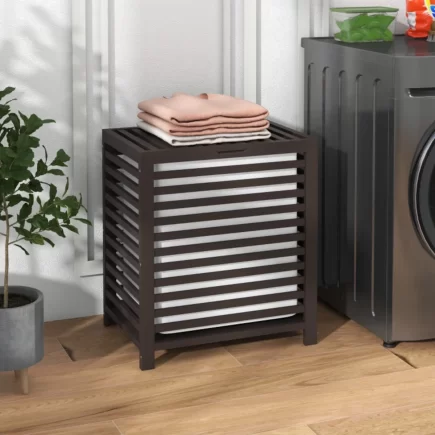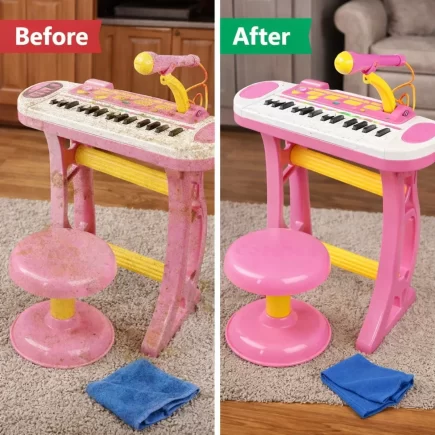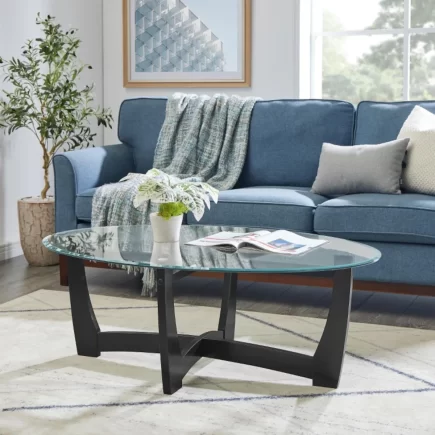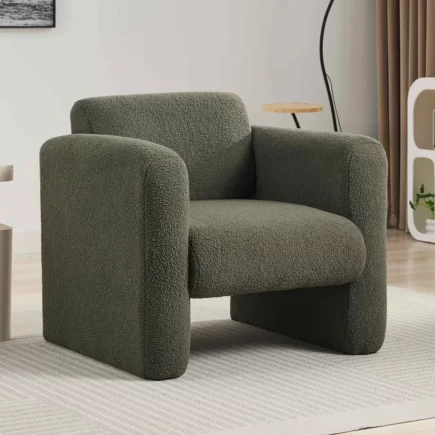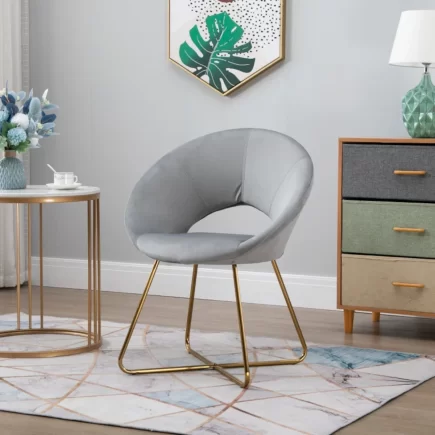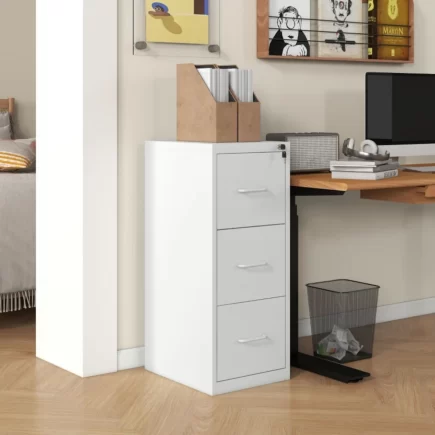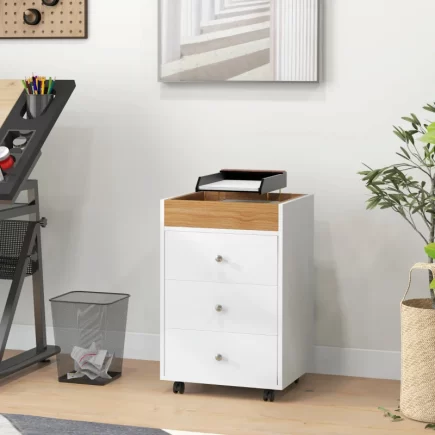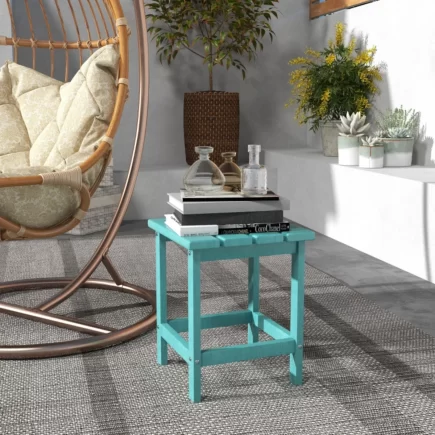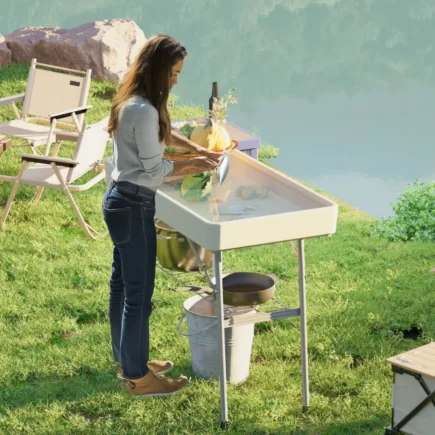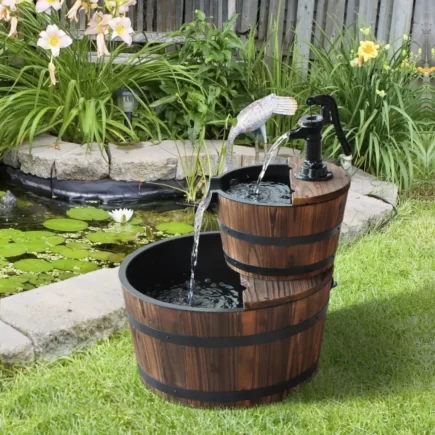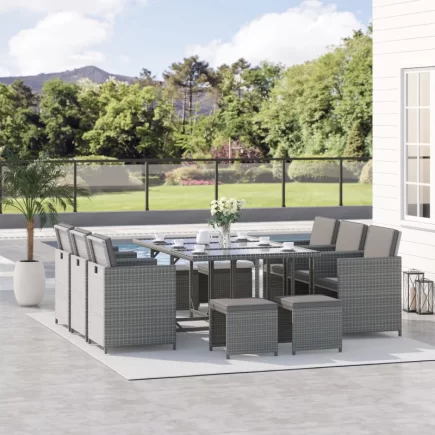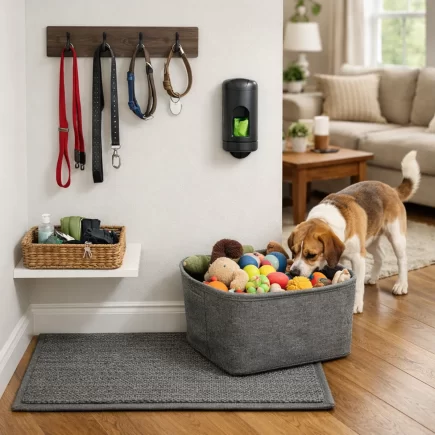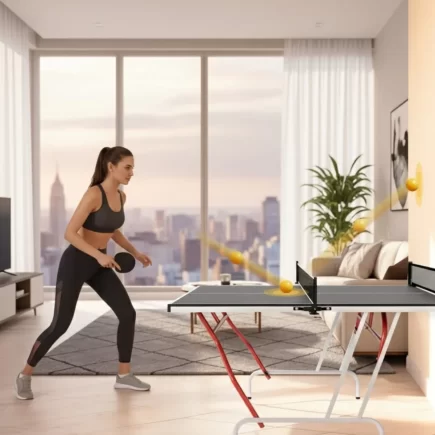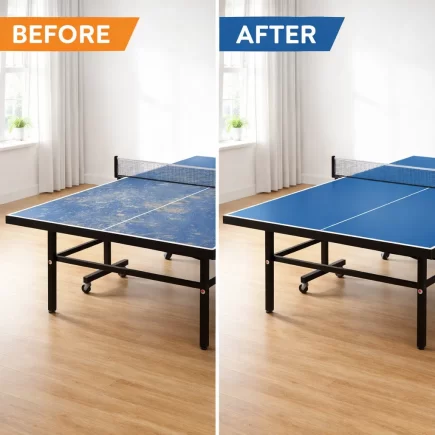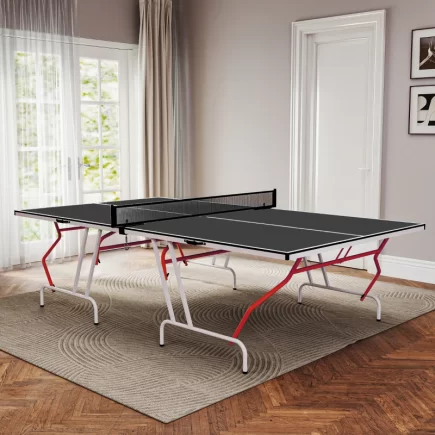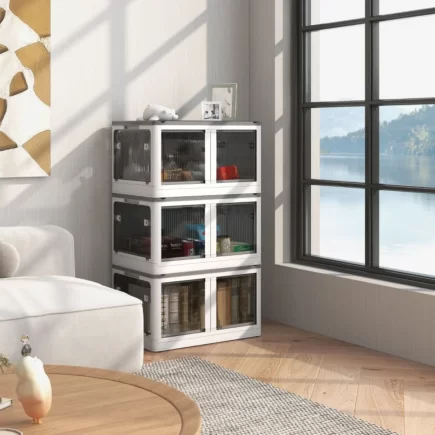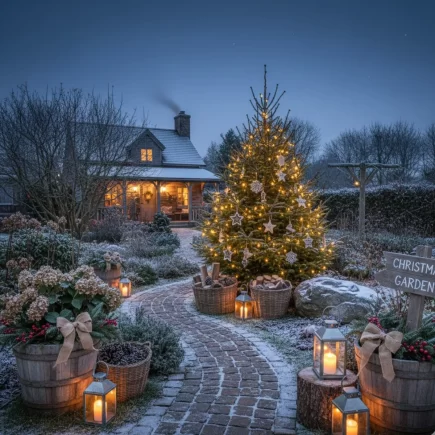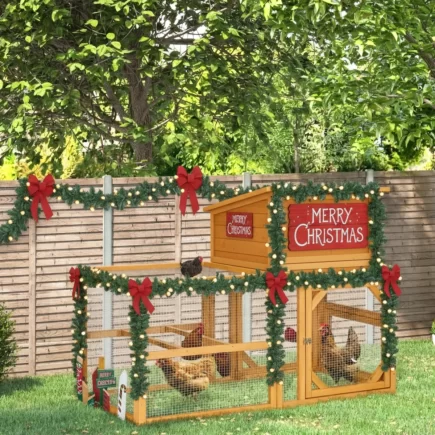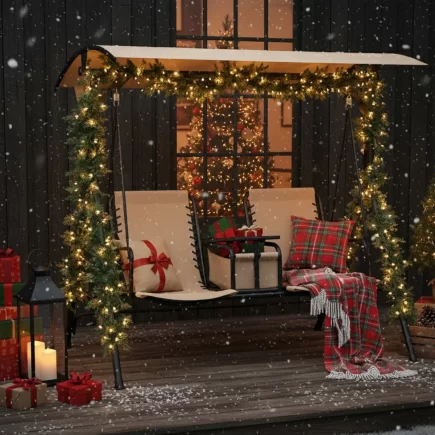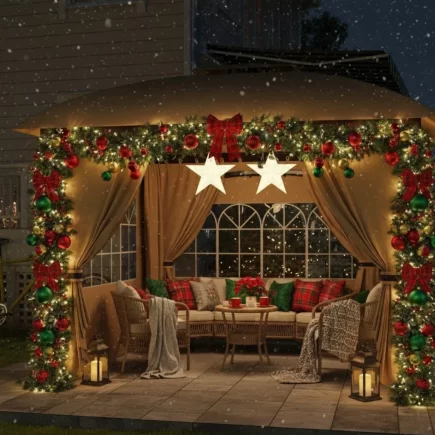Metal plant stands do more than hold pots, they make your plants part of your home’s design. They’re strong, long-lasting, and easy to match with different styles. Unlike wood or plastic, metal stands resist wear and often come with coatings that keep them looking good over time.

They also help you organize plants in a way that looks neat and intentional. By lifting plants off the floor, stands give them better air circulation and more light. Whether it’s a tall stand filling an empty corner or a small pedestal showing off one special plant, a metal stand can instantly brighten up your space.
Types of Indoor Metal Plant Stands
Multi-Tiered Metal Plant Stands
If you have more plants than floor space, a Multi-Tiered Metal Stand with Adjustable Grow Lights is the answer. These tall, layered designs let you display several plants together while still keeping your room organized and stylish.
Key Features
- Designed with multiple shelves or levels.
- Made to maximize vertical space while occupying a small floor footprint.
- Often comes in ladder, tree, or half-moon shapes.
- Can display anywhere from 3 to 14 plants depending on the model.

Pros
- Ideal for large plant collections.
- Saves space by going vertical instead of spreading out horizontally.
- Provides varied light exposure, plants at higher tiers often get more sun.
- Creates an eye-catching, layered display.
Cons
- Heavier when fully loaded, making it harder to move.
- Some models require careful balancing of plant weight.
- Water drainage from upper pots may spill onto plants below.
Helpful Tip
Place larger, heavier pots on the lower shelves and smaller ones on top. This ensures stability and gives each plant adequate light.
Comparison Table: Multi-Tiered Metal Plant Stands
| Feature | Advantage | Consideration |
| Space Use | Maximizes vertical space | Can feel bulky in tight corners |
| Plant Capacity | Holds multiple pots | Needs careful weight distribution |
| Design | Ladder, tree, or arc shapes | Some designs are harder to assemble |
Ornamental Metal Display Stands
These plant stands combine function with a decorative, vintage touch. Inspired by French furniture, these ornate metal frames let you showcase multiple plants while also acting as a stylish furniture piece.
Key Features
- Multi-shelf stands are often designed with ornate swirls or decorative motifs.
- Inspired by vintage French furniture style.
- Can hold multiple plants and decorative items.
- Available in tall, narrow, or wide versions.

Pros
- Adds elegance and a touch of vintage charm.
- Holds several plants at once in a decorative arrangement.
- Works well as a dual-purpose stand for books, candles, or décor.
- Sturdy due to its multi-level structure.
Cons
- More decorative than minimalist, may not suit modern interiors.
- Often larger, requiring sufficient floor space.
- Heavier and harder to move.
Helpful Tip
Use etagere stands in living rooms or sunrooms as both a plant display and a statement furniture piece.
Comparison Table: Etagere Metal Plant Stands
| Feature | Advantage | Consideration |
| Style | Elegant and decorative | May not fit minimalist homes |
| Plant Capacity | Holds multiple pots | Takes more space |
| Functionality | Dual-purpose décor | Heavier to move |
Corner Metal Plant Stands
Corners are often wasted space in a room, and a corner plant stand makes the most of them. These metal stands fit neatly into tight spots, transforming empty corners into green accents.
Key Features
- Built to fit snugly into unused corners.
- Compact triangular or curved designs.
- Typically feature 2–5 tiers arranged in ascending order.
- Great for adding greenery without crowding walkways.

Pros
- Makes use of underutilized space.
- Perfect for small apartments or rooms with limited floor area.
- Draws attention to architectural corners that might otherwise feel empty.
- Easy to style with trailing plants.
Cons
- Limited space for larger plant pots.
- Corners may have less natural light, requiring plants suited for low-light conditions.
Helpful Tip
Use corner metal stands for low-light plants like pothos, peace lilies, or ferns if the corner doesn’t get much direct sun.
Comparison Table: Corner Metal Plant Stands
| Feature | Advantage | Consideration |
| Space Use | Maximizes corner areas | Restricted to certain room layouts |
| Plant Capacity | Good for 2–5 small pots | Not for oversized plants |
| Design | Compact and space-saving | Corners may lack light |
Pedestal Metal Plant Stands
Sometimes one plant deserves the spotlight. Pedestal metal stands are designed to highlight a single statement plant, like a fiddle leaf fig or monstera.
Key Features
- Single tall support designed for one pot.
- Often round, square, or sculptural bases.
- Available in various heights, typically 12–36 inches.
- Focuses on showcasing a single statement plant.

Pros
- Perfect for highlighting a plant as a centerpiece.
- Simple, minimal design fits any décor.
- Lightweight and easy to move around.
- Works well in entryways or beside furniture.
Cons
- Limited to one plant per stand.
- Taller models may be less stable with heavy pots.
- Offers less value for those with many plants.
Helpful Tip
Use pedestal stands for bold plants like fiddle leaf figs, monstera, or decorative palms that deserve spotlight attention.
Comparison Table: Pedestal Metal Plant Stands
| Feature | Advantage | Consideration |
| Plant Focus | Highlights one plant | Not for multiple pots |
| Design | Minimalist and modern | Can tip with heavy pots |
| Placement | Great as a décor accent | Requires open floor space |
Wire Metal Plant Stands
For a light and airy look, wire metal stands are a go-to option. Made with slim metal rods, they add a decorative, artistic feel while still keeping the focus on your plants.
Key Features
- Lightweight stands with open, airy designs.
- Often made from thin metal rods or wire mesh.
- Available as single platforms or multi-tier racks.
- Decorative finishes range from matte black to gold or bronze.

Pros
- Adds a delicate, artistic touch to interiors.
- Easy to move and reposition.
- Usually more affordable than solid iron stands.
- Good airflow prevents mold under pots.
Cons
- Less sturdy for oversized or heavy plants.
- Thin wires may bend under too much weight.
- Some designs may look less formal or polished.
Helpful Tip
Reserve wire stands for medium to lightweight plants in decorative ceramic or glass pots to keep the look elegant.
Comparison Table: Wire Metal Plant Stands
| Feature | Advantage | Consideration |
| Weight | Lightweight, easy to move | Not for heavy pots |
| Price | Affordable | Durability varies |
| Style | Artistic and airy | May not suit formal décor |
Hanging Metal Plant Stands
When floor space is tight, hanging metal stands let you take greenery to the walls or ceiling. They bring plants closer to windows for better light while creating a layered, eye-catching display.
Key Features
- Suspended from the ceiling, walls, or window frames.
- Typically designed with hooks, chains, or brackets.
- Great for displaying trailing or cascading plants.
- Allows plants to benefit from elevated light near windows.

Pros
- Frees up valuable floor space.
- Creates visual interest at different heights.
- Ideal for small rooms or apartments.
- Perfect for trailing plants such as ivy, philodendron, or string of pearls.
Cons
- Requires secure installation to avoid accidents.
- Limited weight capacity depending on mounting hardware.
- Harder to water and maintain compared to floor-level stands.
Helpful Tip
When installing, use heavy-duty ceiling anchors or wall studs to support the stand and prevent accidents.
Comparison Table: Hanging Metal Plant Stands
| Feature | Advantage | Consideration |
| Space Use | Saves floor space | Requires installation |
| Plant Style | Great for trailing plants | Limited weight capacity |
| Design | Adds vertical variety | Can be tricky to water |
Nesting Metal Plant Stands
For versatility, nesting stands are hard to beat. They can be grouped together for a layered display or spread around a room for balance.
Key Features
- Sold in sets of two or more stands.
- Designed to fit together (nest) or be used separately.
- Flexible arrangement options for different spaces.
- Often come in circular or square shapes with varying heights.

Pros
- Highly versatile, can be grouped or spread apart.
- Perfect for creating layered plant displays.
- Easy to store by stacking together.
- Lightweight and movable.
Cons
- Smaller individual surfaces may not fit large pots.
- Sets can be pricier than single stands.
- Requires more floor space when separated.
Helpful Tip
Arrange nesting stands in odd-number groups (three or five plants) for a balanced, professional look in your décor.
Comparison Table: Nesting Metal Plant Stands
| Feature | Advantage | Consideration |
| Flexibility | Can be grouped or separated | Uses more space when apart |
| Storage | Easy to stack | Surfaces are smaller |
| Design | Layered plant display | Not ideal for oversized pots |
Wall-Mounted Metal Plant Stands
If you want greenery without taking up floor space, wall-mounted stands are ideal.
Key Features
- Mounted directly on walls with brackets or hooks.
- Designed as racks, shelves, or frames for pots.
- Best for small or compact living areas.
- Often paired with decorative geometric shapes.

Pros
- Saves maximum floor space.
- Doubles as living wall art.
- Great for succulents, herbs, or small potted plants.
- Easy way to add greenery to tight rooms or offices.
Cons
- Weight capacity is limited.
- Requires drilling or secure mounting.
- Not suitable for very large pots or heavy plants.
Helpful Tip
Group multiple wall-mounted stands in a grid or staggered layout to create a custom plant wall.
Comparison Table: Wall-Mounted Metal Plant Stands
| Feature | Advantage | Consideration |
| Space Use | Maximizes wall space | Requires installation |
| Plant Style | Decorative living wall | Limited to small pots |
| Design | Doubles as wall art | Permanent setup |
There are many types of metal plant stands, and each one works best in different situations. Multi-tier and etagere stands are great for large plant collections, while corner and wall-mounted stands save space. Pedestal and decorative designs are perfect if you want a plant to stand out, and nesting stands let you move things around whenever you like.
The best choice depends on your space and style. No matter which type you go with, choosing the right Indoor Plant Stand will keep your plants healthy, easy to care for, and a natural part of your décor.
FAQs
1. What is the best material for indoor plant pots?
Terracotta pots are a top choice for beginners because they look attractive and naturally wick away excess water, helping prevent overwatering. They’re breathable, affordable, and widely available, making them perfect for almost any indoor plant collection.
2. What is the best color for a plant stand?
Neutral shades like black, gray, or white fit modern spaces, while earthy tones such as terracotta, green, or mustard add warmth to cozy, boho-inspired décor. Bright colors or metallic finishes can also work well if you want your stand to double as a bold style statement.
3. Can I use a metal plant stand as a side table?
Many pedestal or nesting stands can double as small accent tables, especially when styled with decorative pots or trays. Just make sure the surface is sturdy and flat enough to hold books, candles, or drinks if you plan to use it this way.

